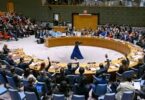Highlighting the strong linkage between economy and security, the COAS General Qamar Javed Bajwa said China Pakistan Economic Corridor (CPEC) is the future of Pakistan and there shall be no compromise over it. He stated, “This is the future of our people, a vital national interest which will be never compromised regardless of the loud opposing voices”. He was addressing a seminar titled “Interplay of Economy and Security” organized by the Inter-Services Public Relations in collaboration with Federation of Pakistan Chambers of Commerce and Industry (FPCCI). The army chief said that the CPEC is not just a collection of road infrastructure and power projects but in fact a complete development platform that has the potential to act as a powerful spring board for shared development in the Central Asia and South Asia (CASA). It is also an example of regional cooperation and break from a politics of confrontation. He opined that the completion of this project will optimize the socio-economic dividend for our country. The COAS emphasized that peace and security is the linchpin for the prosperity of this region.
Lime lighting the unshaken bridge between the economy and security, the COAS has given a robust response to the powers, who are out to undermine the CPEC project. India has shown its hostility to this project right from the outset. However, the US has recently expressed its opposition to CPEC. The defense secretary James Mattis articulated his country stance before the senate’s arm services committee. He argued that it will put China in a dictating position to the world. This sort of argumentation confirms the insights of the Pakistanis into the US pro India policy.
The apprehension of the US that China has ulterior motives and hegemonic design in South Asia are baseless. When the US-China relation touched the lowest ebb during Bush Jr. administration, the former US secretary of state Dr. Henry kissinger advised for restrained and good relations between these two countries. He wrote in an article that China will refrain from military adventurism and pursue the foreign policy of its first PM Zhou EnLai. He eulogized him as the master diplomate and predicted that China will outdo the US in foreign trade. The prediction of this maestro of international relation came true as the US and EU markets are flooded with Chinese goods. COAS has rightly stressed upon the regional integration of economies and breaking away from political confrontation. The integrations in the forms of European Union (EU), North American Free Trade Agreement (NAFTA) and South Asian Free Trade Agreement (SAFTA) are the classic examples of regional cooperation. South Asian Association for Regional Cooperation (SAARC) solely failed because of the obduracy of India and its allies. The quantum of trade among SAARC member countries could not grow because India imposes irrational tariffs and non-tariff duties.
This is undeniable fact that strong economy serves as a primary driver for national security. It was the inherent weakness of the USSR which resulted in its disintegration in 1991. Over the past 9 years, economy has been mismanaged which has led to crisis in Agriculture and Manufacturing sectors. The exports have dropped by 5 billion dollars and the imports have substantially risen. The economy is on the verge of debt-trap with 90 billion dollars foreign debt alone. The foreign direct investment is on the decline and the local entrepreneurs are shy of investment despite of very low markup rate because the high power and gas tariffs along with the regressive taxation system and rampant corruption by the political elite and top bureaucracy. These factors create extremely negative environment for growth and development of the economy.






